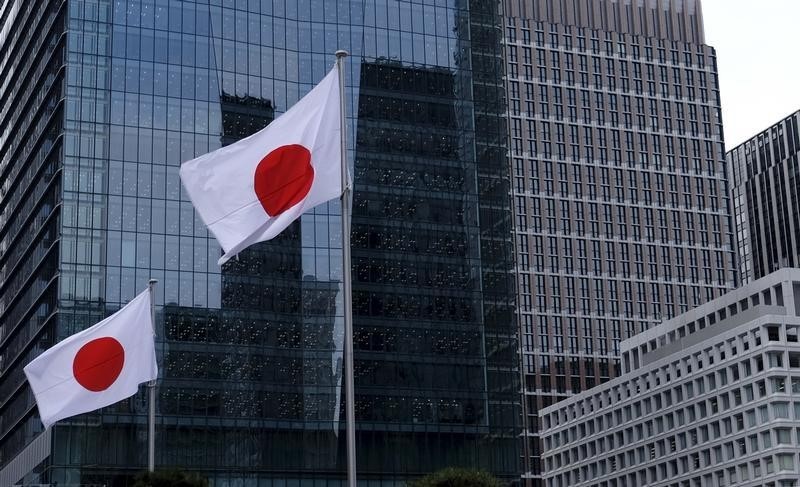(Bloomberg) -- After persuading a few traditional friends of Moscow to chastise Russia over its war in Ukraine, Japanese Prime Minister Fumio Kishida will now try to bring others in Asia aboard to balance a more assertive China.
Kishida is set to lay out his views on broadening the US-backed concept of the “Free and Open Indo-Pacific,” Kyodo News reported. He becomes the first Japanese premier since 2014 to give an address at a regional security conference in Singapore on Friday.
“Japan is more explicitly positioning itself as a ‘bridge’ between the G7 countries, especially the US and Southeast Asia,” said Susannah Patton, a research fellow at the Lowy Institute in Sydney. She said the move was partly “driven by more recent concerns about China’s rapidly growing regional influence.”
Kishida, once seen as dovish, surprised many with his tough response to Russia’s attack on Ukraine and frequent veiled warnings about the risk of a similar grab for territory by China. Now, the longtime foreign minister is corralling sometimes reluctant neighbors in the Association of Southeast Asian Nations to stand beside the West -- if not on condemning Russia, at least on issues like sovereignty and the rule of law.
Cambodian Prime Minister Hun Sen, known for his close ties with Moscow, cited a request from Japan as one of the reasons his government agreed to co-sponsor a United Nations resolution condemning Russia’s attack on Ukraine in March, according to Voice of America.
Following a visit by Kishida, Hun Sen condemned Russia’s actions as an invasion for the first time, Reuters reported, while Vietnam offered humanitarian assistance to Ukraine, according to Kyodo News.
Kishida’s drive in the region could also support the US, as Defense Secretary Lloyd Austin heads to Singapore for the Shangri-La Dialogue and American officials increasingly see China losing diplomatic ground in Asia. While the broader trend points to greater inroads into the region for Beijing, the pandemic has put some of the greatest strains on President Xi Jinping since taking office and diverted attention to domestic issues.
The Japanese prime minister has shown a focus on Asean, where fast growth presents economic opportunities, even as rival loyalties to Russia and China loom large in terms of defense and trade.
His first visit from an overseas leader after taking office was from Vietnam’s premier, Pham Minh Chinh. Kishida has visited Cambodia, Indonesia, Thailand and Vietnam in recent months, and met Singaporean and Malaysian leaders in Tokyo.
In a speech earlier this month, Kishida laid out plans to serve as a link between the region and Japan’s allies and friends around the world. Hosting President Joe Biden for the May summit of the Quad grouping, which also includes India and Australia, he said the group’s success depended on cooperation with neighbors like Asean.
“We must as far as possible get together and send a unified message on Russia,” Kishida told reporters last month during a tour that included Thailand, Indonesia and Vietnam.
While now dwarfed by China as an economic power, Japan’s long history of aid and investment, partly spurred by contrition over its World War II aggression, still gives it sway in many Asean countries.
Now spooked by the Ukraine war and its implications for Asia, Japan is not only planning to raise its defense budget, but increasingly seeking closer security ties around the world, beyond its alliance with the US.
“The US will always welcome countries that support its efforts,” said Derek Grossman, a senior defense analyst at the RAND Corporation. “We’re in a predicament where maybe we do feel like we need a little bit more assistance, especially as China’s economic and military power continues to rise, and we seem to be receding.
Japan has plans for a new security pact with the Philippines and more port calls by Japanese Self-Defense Force vessels to Cambodia, even as the latter breaks ground on a port expansion with China.
A survey published in February showed Japan was the most-trusted country in Southeast Asia, with more than 54% of the policy makers, academics and businesspeople polled expressing confidence in Japan to do the right thing, just ahead of the US and the EU, and far in front of China.
In a bid to cooperate more closely, US and Japanese officials held their first strategic dialogue on Southeast Asia June 1. Japan’s more flexible stance on issues like human rights and democracy could help expand their joint reach, but its efforts are also partly spurred by niggling concerns about the future of US global leadership, according to Yuki Tatsumi, a senior fellow at the Stimson Center in Washington.
“There is a certain level of skepticism about US willingness to continue to play a leadership role,” Tatsumi said. “They very much welcome the Biden administration’s trying to re-engage allies and partners. But at the back of their head there are a healthy number of people questioning what happens after Biden.”
©2022 Bloomberg L.P.
